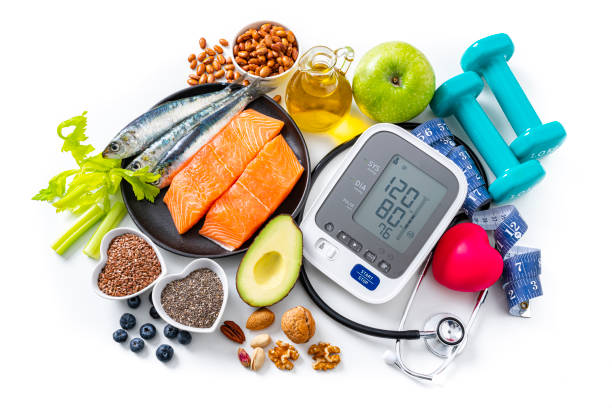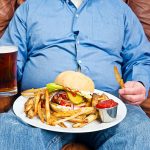The ONE organ responsible for high blood pressure.
How to Cure High Blood Pressure in 3 Minutes

If your blood pressure is elevated and you want to see an immediate change, lie down and take deep breaths. This is how you lower your blood pressure within minutes, helping to slow your heart rate and decrease your blood pressure. When you feel stress, hormones are released that constrict your blood vessels.
How to Lower Blood Pressure Naturally
1. Regular Physical Activity Helps Improve Health
It’s no secret that regular physical activity helps to keep you in good health. Not only does exercise help control high blood pressure, it also helps you manage your weight, strengthen your heart and lower your stress level. “Try to aim for at least 150 minutes of exercise per week of moderate-intensity physical activity, such as brisk walking,” says Dr. Craft. While any type of aerobic activity (walking, jogging, dancing) has a positive impact on heart health, try to find something you enjoy doing. This will make it easier to commit to a regular routine and will motivate you to get up and moving.2. Eat Less Salt
Most people eat too much salt without realizing it. The American Heart Association estimates that the average American eats about 3,400 mg of sodium a day. However, the recommended daily intake is 2,300 mg, with an ideal limit of less than 1,500 mg per day, especially for those with high blood pressure. Dr. Craft adds “Even a small reduction of sodium in your diet can help improve your heart health and can reduce your blood pressure if you have hypertension.” To decrease sodium in your diet, try these tips:- Read food labels. Look for “low salt” or “low sodium” versions of the food and beverages you normally buy.
- Eat fewer processed foods. Only a small amount of sodium naturally occurs in foods. Nearly 70 percent of the sodium we eat comes from processed, prepackaged and restaurant foods.
- Don’t add salt. Just 1 teaspoon of salt contains 2,300 mg of sodium. Use salt substitutes such as spices, garlic, herbs and other seasonings in place of some or all of the salt to add flavor to your favorite dishes.
3. Add More Potassium to Your Diet to Reduce High Blood Pressure
Not only does potassium help regulate heart rate, it can also reduce the effects of sodium in the body. “Potassium helps your body get rid of sodium and also eases tension in your blood vessel walls, both of which help to further lower blood pressure,” says Dr. Craft The most effective way to increase your potassium intake is by adjusting your diet, as opposed to taking supplements. Potassium-rich foods include:- Fruits like bananas, melons, oranges, apricots, avocados and tomatoes
- Milk, yogurt and cream cheese
- Leafy green vegetables, potatoes and sweet potatoes
- Tuna and salmon
- Beans
- Nuts and seeds
4. Limit Your Alcohol Consumption
Some research shows that drinking alcohol in moderation can benefit your heart. However, too much alcohol consumed at one time can cause a sudden spike in your blood pressure. “Monitoring alcohol intake is very important. Alcoholic beverages can contain significant amounts of calories and sugar, which can contribute to increased body fat and weight gain – both of which are factors that can lead to higher blood pressure over time,” says Dr. Craft. If you do drink, the American Heart Association recommends that men limit their alcohol consumption to two drinks per day and women limit their alcohol intake to one drink per day. A drink is considered one 12 oz. beer, 4 oz. of wine, 1.5 oz. of 80-proof spirits or 1 oz. of 100-proof spirits. If you’re currently taking medication to treat high blood pressure, you should be especially mindful of your alcohol intake. “Besides the effect on your blood pressure, alcohol can also reduce the effectiveness of blood pressure medications,” explains Dr. Craft.5. Reduce Your Stress to Lower Your Blood Pressure
We all have stress in our day-to-day lives—a flat tire in the middle of rush hour, a looming deadline at work—that can cause a temporary spike in blood pressure. In most cases, once the stressful situation is resolved, your heart rate and blood pressure return to normal. However, chronic stress may put you at risk for a variety of long-term health issues, including high blood pressure, heart disease and stroke. Stress can also increase your blood pressure levels if your coping mechanisms involve eating unhealthy food, drinking alcohol or smoking. While it’s impossible to eliminate all stressors from your life, learning to cope with them in a healthier way can make a positive impact on your health and wellness—which can in turn lower your blood pressure. Some methods to help alleviate or deal with stress include:- Reframing your mindset. Focus on the things you can control, instead of worrying about situations that are out of your hands. Many times, our anxieties stem from the “what if”—instances that might not ever occur. Putting those thoughts into perspective and reminding yourself to stay present can help calm those worries.
- Avoid stress triggers. Try to avoid putting yourself in unnecessary stressful situations. For example, try leaving for work a few minutes early to beat rush-hour traffic.
- Practice gratitude. Acknowledging all the positives in our lives often helps to shift the focus away from what we want or what we are lacking. In addition, outwardly expressing gratitude to others can also help reduce feelings of stress.
- Take time to relax and enjoy. Carve out time for things that bring you joy. Whether that’s eating a good meal, spending time with loved ones or listening to an interesting podcast on your commute, find time to incorporate small moments of enjoyment throughout the day.
alcohol and blood pressureAvoid Sodium-Heavy FoodsEffects of Sodium to Blood PressureExercise and Blood PressureGet regular physical activityless salt dietLimit Your Alcohol ConsumptionLowering Blood Pressure Naturallymanaging stress and blood pressurepotassium and blood pressureReduce Your Stress to Lower Your Blood Pressurestress and blood pressure









